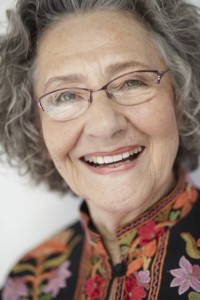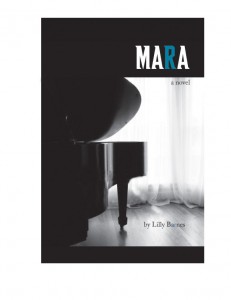By Emily Landau
To outside eyes, Lilly Barnes may be a woman of the world, but her world ends in the Annex.
“My kids tease me—they say I act as if I get a nosebleed north of Dupont,” she chuckles. Barnes has lived in the Annex for almost six decades, where she has thrived as an activist and writer in many forms. This past winter, she published her first novel, Mara, set in Toronto in 1964, a city on the cusp of a worldwide countercultural revolution.
The novel, at once a stylish thriller, historical fiction, and complex character study, tells the story of a young jazz musician’s obsession with Mara DeJong, an enigmatic Russian classical pianist. As the novel gets underway, Mara stands accused of a bizarre crime: cutting off her dead daughter’s earlobes. Some of the biographical details of the title character were based on Barnes’s mother, a graduate of the Leningrad Conservatory, but Barnes insists that Mara’s mysterious, slightly sinister personality bears little resemblance to her mother’s.
“I [didn’t] want to spend years in my mother’s head. Who does?” she muses. “What came to me was that I could write about her life without being in her head if I was using a different narrator.”
As told by Ted O’Sullivan, a jazz pianist struggling to understand Mara, the novel is a classically spun noir that immerses the reader in a vividly remembered Toronto. In addition to the whodunit element, the novel also looks at how history and circumstances were capable of trapping women in post-war Europe.
“To me, the entire trajectory of a very smart, very talented, very, in many ways, courageous woman, got curtailed, got chopped short by historical events,” suggested Barnes. “She goes where her choices are, and it becomes almost perverted.”
Barnes herself has been blessed with a plethora of choices—high achievement seems to run in the family’s female gene pool. “I have one aunt who was a partisan fighter against the Nazis in Germany during the Second World War and [was] decorated for it,” she said. Another aunt was Russia’s first female parachutist. “Isn’t that great? I love that,” she laughed.
Born in Russia to a German father and Russian mother, the family moved to Germany before World War II. “We lived in plain sight, but in hiding,” said Barnes, explaining that although her mother was Jewish, she was not raised as a Jew and didn’t speak German with a Jewish accent, which likely saved the family from detection.
While Barnes prefers not to identify herself in terms of ethnicity, she recognizes that this composite cultural background contributed to shaping the beliefs she has fought for as an activist.
“I’m half-German and half-Jewish. This is something like being half-black and half-white in South Africa during Apartheid days,” she comments. “I know that it’s my particular ethnic mix that … put me into the perfect place in this universe to fight prejudice and racism of any kind.”
After living on an Israeli kibbutz for three years, Barnes came to Canada and landed on Ulster Street. She married a Canadian and briefly studied in Europe, but soon planted her feet firmly in Annex soil with her husband and children, where she studied English literature and philosophy at the University of Toronto. “It was at university that I discovered I had a brain. Nobody had mentioned it to me before,” she said.
Barnes says she always knew she would be a writer. For its entire run between 1967 and 1996, she was a senior scriptwriter for Mr. Dressup, a show that will make everyone from baby boomers to Gen-Yers nostalgic for the halcyon land of puppets and make-believe. For her body of work on the show, she won a Gemini award in 2007. She has also worked as an arts journalist for CBC Radio and has published a variety of poetry and short stories.
Despite her impressive resume, writing Mara was still brand new territory for Barnes. “I remember writing about a third of it in one summer in a big heat,” she said, adding that the novel went through many incarnations over a number of years. “I was basically learning to write the novel while I was writing the novel.”
In between lucrative writing gigs, Barnes has moonlighted as a strident activist, particularly for local issues affecting her community. For example, she was one of the strongest voices against the creation of the Spadina Expressway, which she argues would have “cut a community in half.” Some ventures were less successful. At one point, she was briefly jailed for protesting the development of a nuclear power plant just east of the city, which ultimately got built.
“It made no difference in the end.” she sighed. But, she said, “I [didn’t] want my grandchildren to ask me, ‘You knew this was happening. What did you do about it?’ You know? I don’t want to ever be in that position, which is why I’m still an activist.”
For Barnes, writing is an outlet for activism—Mr. Dressup, for example, was a conscious exercise in educating children about tolerance. “From the very beginning, we made sure that there was no racism, no sexism, no ageism,” she says proudly. “We basically worked against stereotype and against prejudice of any kind.”
Even Mara, while not an explicitly political text, speaks to causes that were just beginning to gain steam in the 1960s, like feminism, the civil rights movement, and art for art’s sake, as well as emerging issues of post-war culture-clash. “We were drawn to the [novel] because it pushes the social and cultural expectations of Canadians by bringing into question the assumptions we have of cultural backgrounds and social norms,” writes Sandra Huh, Barnes’s editor at Variety Crossing Press, in a statement.
In Barnes’s experience, Canada “is a great place to be any kind of writer,” and for her, no place embodies this spirit better than the Annex. She praises its greenspace, walk-able terrain, and communal atmosphere as creating a fertile breeding ground for the arts.
“The pace [here] is very different than if you’re working or living in the suburbs and do everything by car,” she argues. “And I think that it is a lot more conducive to creative thinking.”
When it came to releasing Mara, she was determined to publishing the novel in Canada. “I wanted to be published where my life is, where my people are,” she said. In a fortuitous turn of events, Barnes became friendly with the owner of a Harbord Street flower shop who was starting an independent press. After publishing some of her poetry, Variety Crossing Press took on Barnes’s novel.
For Barnes, the story of how her novel was published exemplifies the organic community and camaraderie she has experienced in the Annex, where she says she lives as she would in a village.
Mara is the first title in Variety Crossing Press’s Stories that Bind imprint, and Barnes will continue to write and live in her little corner of the Annex, where, she declares, “I can be exactly as I am without bending myself out of shape in any way whatsoever. In the Annex I am most completely me. It’s my turf.”


